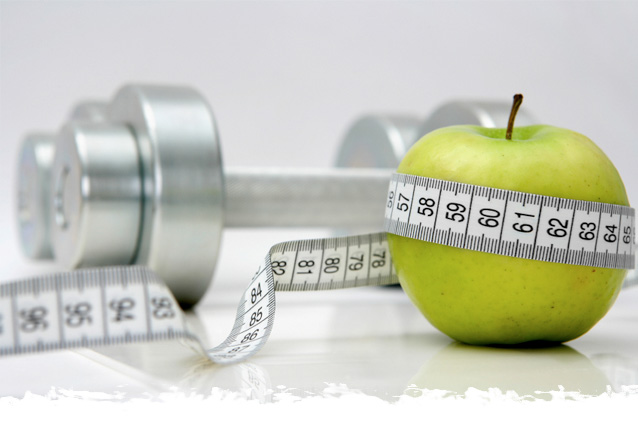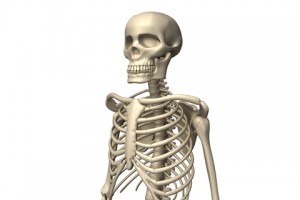Close to a quarter of those who have a hip fracture due to brittle, porous bones (part of what defines osteoporosis) will die within a year. It is generally thought to be a disease of the elderly, but can strike at any age, and, as we start losing bone in our mid-30’s, it is a prime example how we should be using preventative medicine in childhood to optimize our peak bone mass in adolescence.
This condition is diagnosed when bone mass falls 25 per cent below normal, leading to increases in fractures, disfigurement, lowered self-esteem, and a loss of mobility and independence. The most common tool of diagnosis is a bone mineral density (BMD) test called a DEXA scan. This test is recommended for postmenopausal women over 65 years of age or those under 65 years of age with significant risk factors.
Osteoporosis has been on the rise in North America in the last few decades. At least 1 in 3 women and 1 in 5 men will suffer from an osteoporotic fracture during their lifetime. Follow this link for more statistics from Osteoporosis Canada.
So, what is happening here?
It leaves me asking the following questions: why is our food so deplete in vital minerals? Why has our diet drastically changed in the last 50-100 years from the whole, real foods our great grandparents grew, cooked, and consumed? How do we reverse and prevent the common mal-absorption issues that obstruct the body from utilizing nutrients to build strong bones? As a naturopathic doctor, I feel it’s my duty and responsibility to dig deeper and find the cause of the disease rather than simply treating the symptoms.
Osteoporosis is much more common in affluent parts of the world that have developed the unhealthy dietary habits and sedentary lifestyle common in North America. Women are less likely to develop osteoporosis if they’ve had multiple pregnancies, do physical labor and frequent physical activity, eat a predominantly vegetarian diet, and have a higher Body Mass Index (BMI) (one disease in which being overweight is protective!)
Osteoporosis is largely preventable. The best thing we can do for our youth is to encourage them to participate in sports and ensure they’re getting adequate daily physical activity, lessening the time spent in front of the TV and computer. The latest studies show that regular strength training helps build and maintain strong bones; a recent study that followed women doing vigour exercise for an hour a day for 1 year, found they increased their bone calcium levels by 30%. While most of us don’t have an hour per day to spend on exercise, I do recommend doing at least 30 minutes five days per week of higher intensity cardio with some strength training built in.
A nutritious upbringing starting in childhood and lasting throughout life is very important.
- Soy foods fed to children (in moderation) have been correlated with positive bone density levels in adulthood.
- It is important to limit or avoid pop which leaches calcium from the bones. The risk of osteoporosis has increased dramatically since carbonated drinks containing phosphorous became a staple in the North American diet. Phosphorous readily binds with calcium, increasing the rate at which we excrete it from our body through urine.
- Protein is important for a healthy body structure, but too much is acidifying for the body. Calcium binds with acidic products in the blood, (caffeine included here) decreasing the availability for the bone, and these calcium complexes are then excreted from our bodies.
Moderating our protein and caffeine intake is important. General protein recommendations are 0.4 grams of protein per pound of body weight per day (roughly 80g per day for a 200 lb individual), and as for caffeine – no more than 1 cup of coffee per day. The next step is to increase consumption of calcium-rich, nutrient-dense foods such as green leafy vegetables, nuts, broccoli and beans to protect against and reverse osteoporosis.
If you reach the place where supplementation has been recommended by a doctor, know that calcium alone is insufficient. There are over two dozen nutrients necessary for bone health. Studies have shown that while calcium, magnesium and vitamin D are vital, other microminerals are required to build stronger bones, and this is key to preventing fractures. The daily intake of calcium should be 1,000 mg for men and 1,200 mg for women, with the majority coming from foods and the rest from a supplement. Specifically you want a supplement containing bone-strengthening nutrients such as calcium, magnesium, vitamin D, strontium, boron, zinc, and manganese. Calcium comes in various forms – I recommend calcium hydroxyapatite which is sourced directly from bovine bone, similar in makeup to our own human bone. Ensure your calcium hydroxyapatite supplement is derived from pasture-fed free-range livestock not subjected to antibiotics or bovine growth hormone (rBGH).
Remember: prevention is key, but if you already have a diagnosis of osteoporosis, it is even more important to get regular physical exercise, reduce your consumption of caffeine, sugar, and carbonated beverages, moderate your protein consumption, and increase your consumption of highly nutritious calcium-rich foods while taking a daily supplement to meet the calcium needs of the body.







I have Osteopenia and I am lactose intolerant and I am wanting to know which are the best foods to eat to be readily absorbed when you have a lactose intolerant problem. Should I be taking something else to help absorb the Calcium in the foods that I am eating. I am taking Vitamin D and folate tablets as well. Also have just in the last few weeks had half my Thyroid removed because they weren’t sure about a nodule. So now I am wondering whether I should be taking that Thyroxine medication or is there another solution maybe in food or other supplementation. My hormones seem to be working alright. Because my Libido is still good. Not sleeping well though. Also have to have my right Fallopian tube removed shortly. So alot happening to me at this present momenet. Can you advise any improvements to me.
Hi Celia,
Before I answer your questions, I’ll preface this by saying that it is difficult for me to give individual information based on the little information that I do have about you and that I would highly recommend you seek out a natural health care practitioner that will sit down with you and do a detailed intake and then can properly advise you. With that being said, dairy foods have been shown to promote, rather than protect against, osteopenia and osteoporosis, so don’t feel you’re missing out by avoiding them due to your lactose intolerance. In fact, most of us have a degree of lactose intolerance (reduced production of the lactase enzyme that breaks down lactose) and our bodies aren’t adapted to drink milk (highest concentration of lactose) past childhood – let alone another mammal’s milk (cows)! The best foods you can be eating to protect your bones are calcium-rich foods that are high in minerals and are nutrient-dense. Some examples would be sesame seeds, sardines or wild salmon (bone-in), and collard greens. Google “calcium-rich foods” for more info. As far as what to take to absorb the calcium better – that is debatable. If you’re eating a very clean/healthy diet and have no absorption issues (manifesting in symptoms such as gas, bloating, diarrhea, constipation, cramping pain, etc.) you should be perfectly fine absorbing enough calcium from your diet alone without the addition of supplements to increase absorption. If, for some reason, you suspect poor absorption or have taken stomach acid-lowering drugs, then you may want to supplement with digestive enzymes, hydrochloric acid and probiotics to improve the functioning of your gastrointestinal tract, and thus, absorption. In respect to your thyroid gland, taking medication or eating a specific diet to treat your thyroid would be based on symptoms you are experiencing that suggest thyroid imbalance and lab tests. This would have to be determined by an in-office visit as it is beyond my ability to make recommendations in this forum.
Hope that helps Celia!
Dr. Elliott